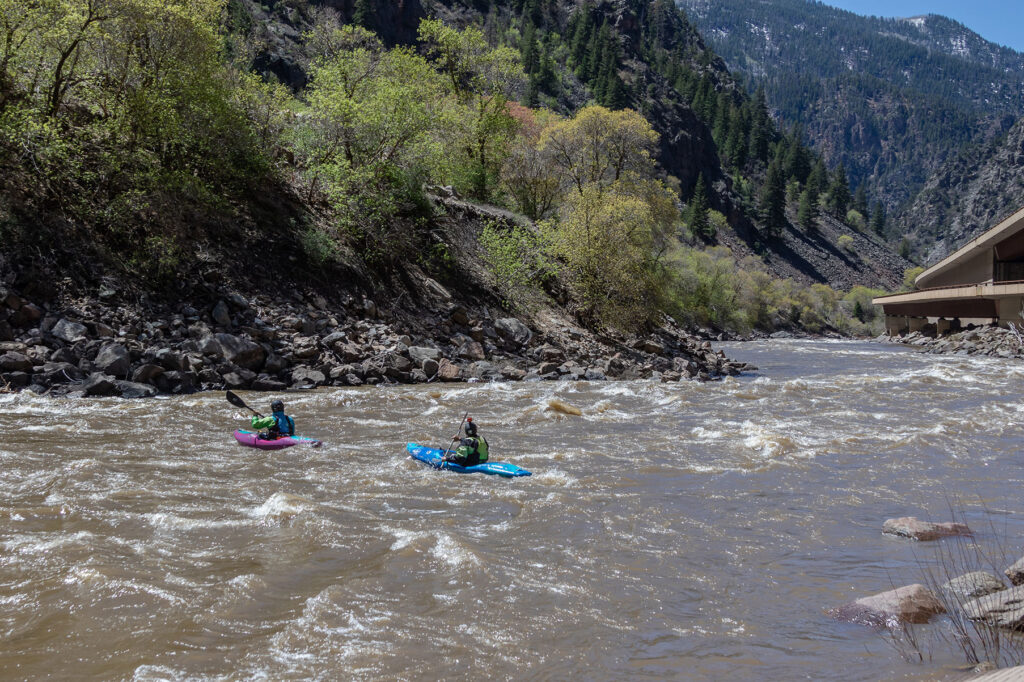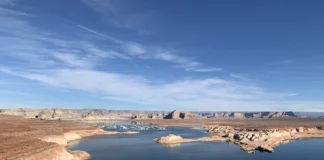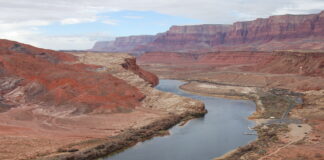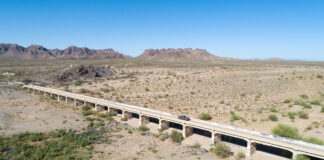
Western Slope voters have overwhelmingly passed a proposal by the Colorado River Water Conservation District to raise property taxes across its 15-county region.
According to preliminary results as of 10:45 p.m. Tuesday, encompassing about 246,245 ballots, about 72% of voters said yes to the measure. Saguache County was the lone county to vote against the measure.
Pitkin County voters passed ballot question 7A with 80% in favor, despite three of five county commissioners and Pitkin County’s representative to the River District board John Ely opposing the measure. Nearly 69% of voters in Mesa County, which has the largest population base in the district, supported the measure.
The River District announced that the measure had received voter approval in a news release at 7:55 p.m. Tuesday, saying the organization is ready to get to work implementing water projects across the district.
River District general manager Andy Mueller said the results prove that water is the one issue that can unite voters in western Colorado.
“It was the one issue that’s not partisan, that was about uniting a very politically diverse region,” he said. “Everybody is so sick of the nasty, divisive, partisan politics. People with (Donald) Trump signs and (Joe) Biden signs voted for the same thing.”
Ballot measure 7A raises property taxes by a half-mill, or an extra $1.90 per year for every $100,000 of residential home value. The measure will raise nearly an additional $5 million annually for the River District, which says it will use the money for fighting to keep water on the Western Slope, protecting water supplies for Western Slope farmers and ranchers, protecting drinking water for Western Slope communities, and protecting fish, wildlife and recreation.
According to numbers provided by the River District, the mill levy will increase to $40.28 from $18.93 annually for Pitkin County’s median home value, which at $1.13 million is the highest in the district. In Eagle County, where the median home value is $660,979, the mill levy will increase to $23.63 from $11.11 annually.
Property owners can expect to see the mill-levy increase on their 2021 tax bill.
The proposal received wide support among county commissioners, agricultural organizations and environmental groups.
Eagle County Commissioner and River District board member Kathy Chandler-Henry, who also served as vice-chair of the political action committee Yes on 7A, said it would have been nearly impossible for the River District to protect Western Slope water without the tax increase.
“I’m glad people throughout the district saw the value in that, even though it’s a tough time to be asking for a tax increase,” she said. “I think that’s a huge win and a huge vote of confidence in the work the River District’s been doing.”
The River District, based in Glenwood Springs and created by the state legislature in 1937 to develop and protect water supplies in western Colorado, spans Grand, Summit, Eagle, Pitkin, Gunnison, Garfield, Rio Blanco, Routt, Moffat, Mesa, Delta, Montrose, Ouray, Hinsdale and Saguache counties.
The River District’s fiscal implementation plan for the revenue that would be raised by the tax hike says 86% would go toward funding water projects backed by roundtables and local communities. Those projects would fall into five categories: productive agriculture; infrastructure; healthy rivers; watershed health and water quality; and conservation and efficiency.
This story ran in The Aspen Times, the Glenwood Springs Post Independent, the Summit Daily News, the Vail Daily, the Steamboat Pilot and Today and the Sky-Hi News.
The Water Desk’s mission is to increase the volume, depth and power of journalism connected to Western water issues. We’re an initiative of the Center for Environmental Journalism at the University of Colorado Boulder. The Water Desk launched in April 2019 with support from the Walton Family Foundation. We maintain a strict editorial firewall between our funders and our journalism. The Water Desk is seeking additional funding to build and sustain the initiative. Click here to donate.





